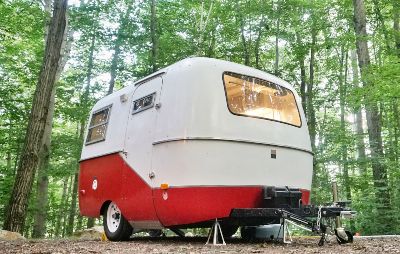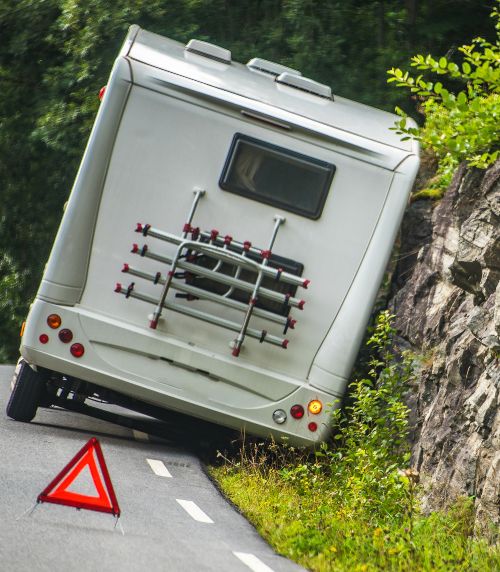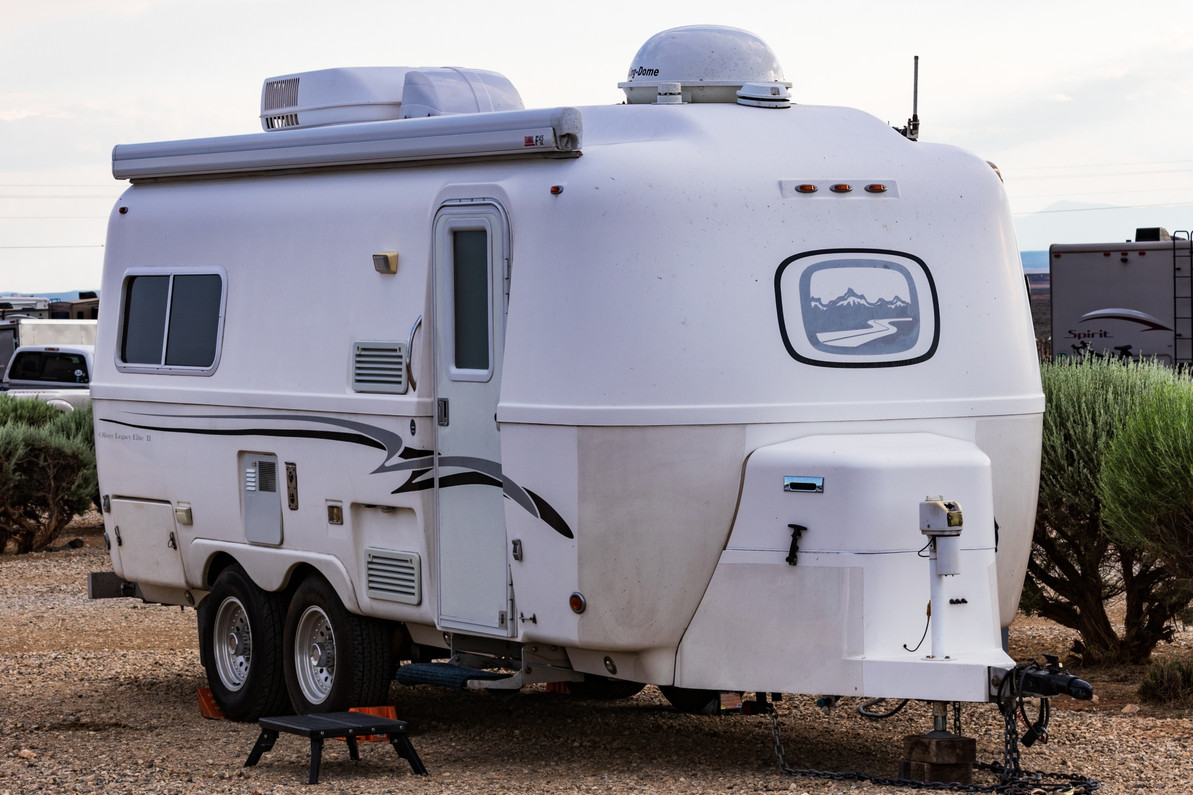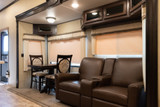The Ultimate Guide To Fiberglass Camper Trailers
What are small fiberglass camper trailers, and how do you take care of them? Small fiberglass campers are great for the outdoor-lover. They are easy to tow with a car, SUV, or truck and can be parked in a variety of locations. They are lightweight but also sturdy enough for rough terrain. These campers are easy to set up and even easier to maintain. In this article, we will go over various details, advantages, and maintenance for large or small camper trailers made using fiberglass.
What Is A Small Fiberglass Camper
When you think of a fiberglass camper trailer, you may unintentionally think of the wrong thing. There are many models of RV camper trails that feature cheap fiberglass side paneling that is often attached insecurely. A true fiberglass camper is molded out of fiberglass itself.
A molded fiberglass camper is sometimes referred to as a pull behind camper. It is built using two or three pieces of molded fiberglass. These two or three molded fiberglass pieces are then attached together to create the "shell" of the trailer.
Small fiberglass campers are some of the best out there for new and veteran RVers alike. Why? Because these types of pull behind trailers have several advantages that could be difficult to find in other RV and camper models.
Lightweight
Most RVs and camper trailers for sale that you find these days are constructed using materials such as wood, aluminum, or even steel in rare cases. While these materials all have their advantages, they can be heavy - even aluminum. Fiberglass is a very lightweight material, making fiberglass pull behind trailers far easier to tow and maneuver, especially with smaller vehicles.
Water-Resistant
As stated earlier in this article, actual fiberglass camper trailers are often built using two or three molded fiberglass pieces attached together to form a shell. This means that there are fewer seams in a fiberglass trailer than you would find in an aluminum trailer, which means fewer points of entry for water to sneak its wet way inside.
Enhanced Strength And Durability
Since its invention from 1932 to 1933 by Games Slayter of Ownes-Illinois, fiberglass (at that time referred to as Glass Wool) has been known for its surprising strength. Fiberglass can weather harsh indoor and outdoor elements. These elements can range from fluctuating high and low temperatures and harsh UV rays from the sun to impacts and more. All in all, the strength of fiberglass makes it an excellent material for large and small camper trailers.
Aerodynamic
This is one advantage that you may not even consider immediately, but you should! Whenever you decide "I'm ready to look for camper trailers for sale near me," you should consider their aerodynamics. The aerodynamics of your trailer can have a significant impact on your time traveling with it. Despite its strength, fiberglass is very versatile and easy to shape, allowing it to be cut and molded into streamlined designs that give you optimal road performance. Better aerodynamics on your camper trailer can help reduce noise and vibration during travel and improve your fuel economy as there will be less drag occurring from the wind.
Important things to consider
If it is your first time looking for large or small camper trailers for sale, you may be wondering why you should choose a fiberglass model. Truth be told, every individual RVer will have different wants and needs. It is an essential step in the buying process (and should be one of the first steps) to assess what you want out of your rig and what kind of experience you desire. Doing so will help you determine the size of the rig you want, which features you wish to include or exclude, how much you are comfortable with spending, and more. A few things to consider about fiberglass camper trailers for rent or sale are:
- Water resistance
- Long-lasting durability if adequately taken care of
- Easy to tow with a wide range of vehicles
- Superb resale value
- Offer different aesthetics than many traditional RV models
- Can be shorter in length and height, making them easier to fit on many campsites and easier to store

Where To Store The Small Fiberglass Camper
Unless you plan on living in fiberglass camper trailers full time, you will want to consider storage. Where will you put your trailer when you are not using it? What should you do before you store it? Many people are content to simply park their trailer somewhere in the backyard, drape a tarp over it, and forget about it. But if you care about your camper trailers and want them to last longer and remain in good condition, you will strive for proper storage.
Small camper trailers, especially fiberglass, are easier to store than a giant RV. The first thing you should do is clean out your trailer. This is a crucial step unless you wish to return to a musty, smelly, nasty camper trailer in the future. Start out by opening up all the doors and windows of your camper and letting it air out to help remove any odors and allow fresh air inside.
Remove ALL food, starting with perishables such as raw or cooked meat. Packaged food should still be removed, such as those in cans or sealed bags. Even though they last longer, packaged foods can still attract insects, mice, and other pests.
Speaking of pests, lay out a few mothballs to help deter rodents. Spray some peppermint oil around the edges of doors, windows, and other entrances to help further deter insects - they really do not like the smell of peppermint!
Ensure that any electronics are disconnected or powered down from your campers' power supply; otherwise, they may drain the power supply during storage. Ensure that your RV or camper batteries are fully charged before storing your camper trailers. That way, you can avoid coming back to a dead battery.
Drain every bit of water from your RV or campers' plumbing system. This includes your rigs' water heater tank. You do not want to return to a leaky or broken pipe that has now spilled water over your precious home on wheels. If needed, add some antifreeze to your piping, especially when storing your rig for the winter.
Close any doors, windows, or other openings and give your RV or camper a good washing, followed by a thorough waxing. Once you have done this, you are ready for the final step! Simply find where you wish to store your rig, such as in a barn or garage or right out in the backyard, and park it! If you choose to store your rig outside, make sure that you cover it up with a durable, weather-resistant tarp to help protect it from the outside elements.
How To Maintain It
Fiberglass pull behind trailers have another great advantage that many can readily appreciate - they are simple to maintain. The simple maintenance of this kind of trailer is mainly due to how durable the material is. Typically, a fiberglass camper trailer can be taken care of with nothing more than regular washing, rinsing, and waxing.
Normal soap and water should easily remove and wash away dust, dirt, and debris. Waxing your fiberglass RV or camper trailer will prove particularly beneficial. Regular waxing of your fiberglass RV or trailer can help prevent irreversible damage and helps further bolster the materials' waterproof properties. Additionally, waxing your fiberglass RV or trailer gives it a lovely, smooth, and glossy shine that can make it look sharp and appealing in any setting. Regardless, you should always follow the recommended maintenance guidelines of the manufacturer.
There are many different kinds of cleaners and waxes out there. RV wax, in particular, can come in liquid or paste form and can be applied by hand or via a handheld buffer. When purchasing cleaner and waxes for your RV or trailer, make sure that they are suitable for fiberglass use and do not contain any chemicals that the manufacturer warns against.
What to do in case of an accident
Whether you are taking your camper trailers off road or cruising down the highway, observing and adhering to vehicular safety should always be your first priority. However, accidents can happen to even the best of drivers. Here is a list of things you should do if you happen to get into an accident when owning or renting camper trailers.

Check Yourself And Passengers
Once you have safely stopped your vehicle, the first thing you should do is assess the situation. Begin doing so by checking yourself and your passengers for any injuries. DO NOT attempt to move an injured person unless they are in immediate danger.
Check On Passengers In Other Vehicles
Suppose any other vehicles have been involved in the accident. In that case, you should check on their passengers for any injuries or immediate danger. The same rules apply, do NOT attempt to move an injured person unless they are in immediate danger.
Call 911
If you or another individual has not done so already, call 911. You may not need an ambulance for injuries if you are lucky. Still, the police will be able to assist you with getting your vehicle safely back on the road or with removing the wreckage safely. If you are alone and your accident was with an object such as a fallen tree limb, call 911 and wait for help. Use road flares or hazard signs to make yourself easily visible to emergency services and other drivers who may need to move past you.
Move Your Rig To Safety
You should only move your vehicle/rig if it is entirely safe to do so, especially if you are on a busy road with lots of other traffic, such as a highway. If you are towing your rig via a trailer, leave it where it is, as you do not know if your hitch is damaged. A damaged hitch could fail, causing more damage or injury or putting your trailer into an even more precarious situation.
Document And Exchange Information
Once everyone is safe, and emergency services have been notified, you should begin documenting the incident as best you can. Write down whatever details you can remember while they are still fresh in your mind, and take pictures of your vehicle, rig, any injuries, and damage done to others' vehicles or property. Additionally, you should include:
- The name and badge number of any officers.
- A copy of the accident report.
- The contact information of those involved.
When exchanging information with others involved in the incident, make sure you get their full name and current contact information, the name of their insurance company and policy number, their drivers' license and plate numbers, their vehicle information, and the location of the accident.
Speak With Your Insurer And File A Claim
You should speak with your insurer as soon as possible, preferably before you leave the scene of the accident. They will gather details of the incident and help guide you through the process of filing your claim. Some information that may be necessary when speaking with your insurer and filing your claim may include the cause of the accident, the extent of damage done to the vehicles or property, and any injuries that may have occurred.
Adventure Like Never Before
Campers, trailers, RVs, and even modified vans are all a gateway to something great; adventure and freedom. With the vast array of different models and styles of RV and camper trailers for rent and sale, there is sure to be something perfect for you. As you go about your business and consider buying or renting camper trailers near you, take a moment to think about the various benefits that fiberglass pull behind trailers can offer you. If you already have small camper trailers that you love but would like to spruce them up, then take a look at some of the great products we offer - including excellent products for cleaning, washing, and waxing.
Do you have a fiberglass camper trailer? Tell us what you love most about it in the comments below! Are you looking for fiberglass camper trailers for rent or sale near you? Tell us what you hope to find!
Recent Posts
-
Trailer Wiring Guide: How to Wire Your Trailer for Safety and Efficiency
Table of Contents 1. Common Types of Trailer Connectors 2. Trailer Wiring Diagrams: Color Codes and …Aug 20th 2024 -
How to Keep Your Pets Safe While Camping
RVing and camping are a great getaway from the hustle and bustle of work and the city and the day …Jul 2nd 2024 -
Why Replace Your RV Furniture?
You may wonder when is the best time to replace your RV furniture. There is no one right answer t …May 20th 2024 -
Are RV Electric Fireplaces Safe
Being Safe in Your RV with an Electric Fireplace Safety is always going to be one of your highes …Apr 25th 2024 -
How To Install An RV Fireplace
A Warm Addition to Your On-Wheels: The DIY RV Fireplace Installation Guide Many RV enthusiasts a …Apr 25th 2024 -
How To Keep RV Furniture From Peeling
Peeling RV Furniture | Why it Peels and How to Stop it Your RV furniture is a point of pride on …Apr 25th 2024







